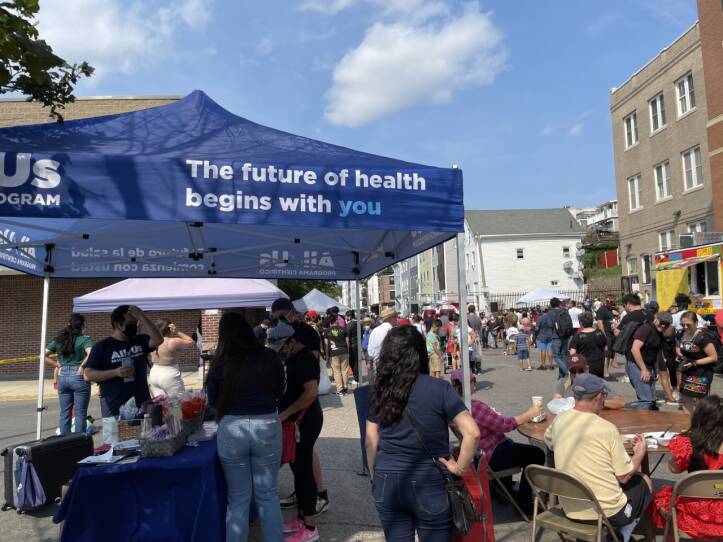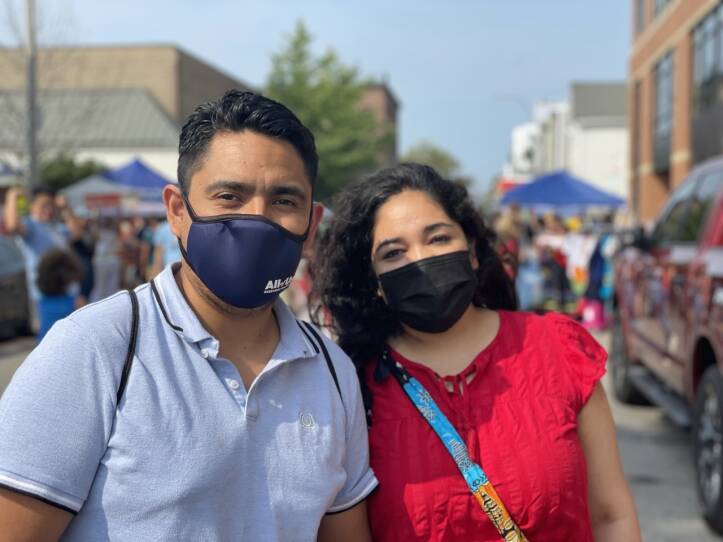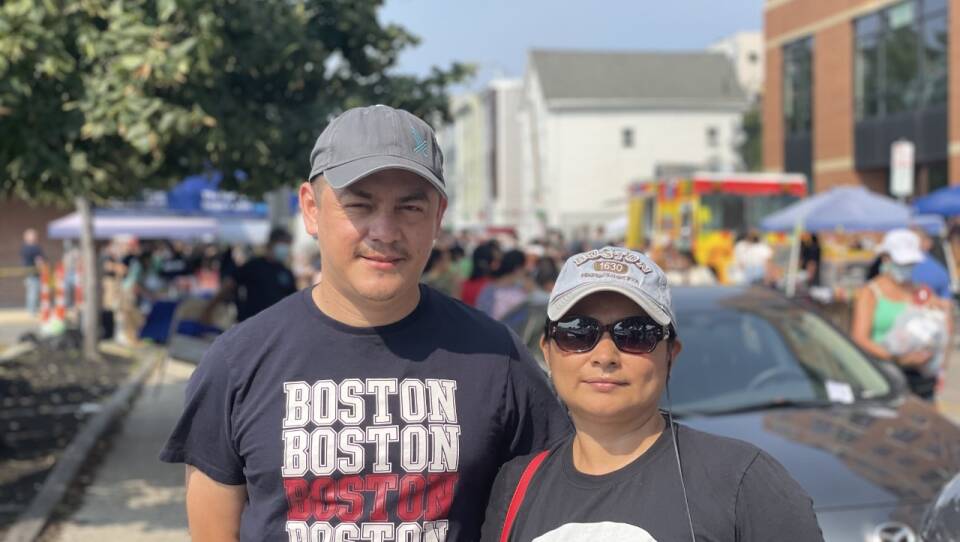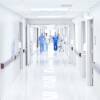Medical researchers in Boston are helping sign up one million volunteers for a first-of-its-kind study examining the link between genes and our health. Researchers are actively recruiting volunteers of different races and ethnicities to ensure that the study reflects the diversity of the United States.
The All of Us Research Program uses people's DNA and genomic science to study the connection between genes and health. It was launched in 2018, and the goal is to better understand why some people are more likely to develop a disease, while others are not.
“It's almost the basic mystery of life as to, why does the person beside me get cancer and I don't?” said Dr. Robert Green, a professor of medicine at the Division of Genetics at Brigham and Women's Hospital who is a co-investigator on the study. “Why does the person on the other side of me get a heart attack?”
A consortium of local community health care centers and Boston hospitals, including Brigham and Women’s and the Boston Medical Center, are involved in the $1.2 billion, nation-wide research, funded by the National Institutes of Health.
Research recruiters and engagement coordinators are going out into local communities to reach diverse populations of volunteers.
At a Mexican Independence Day celebration in East Boston earlier in September, hundreds of people came to listen to mariachi music and celebrate. Boston hospital researchers were there, too. They set up an information booth outside the Veronica Robles Cultural Center to tell people about the study and to sign up volunteers.
Researchers across the country are nearly to their goal — about 413,000 people have registered since recruitment began three years ago.
Susana Cruzes, who was born in Mexico City and is now living in Boston, said she never considered volunteering for a research study before.
“I never thought about it until I heard about it at Veronica Robles one day, [that it’s] only thinking about medicine for white people,” Cruzes said. “And I say, well, as you can see, I’m not a white [person], so if I can help, I’m going to do it.”
Dr. Cheryl Clark, hospitalist and researcher at Brigham and Women’s Hospital, is the study’s principal investigator for engagement. The study is unique, she said, because it includes people who historically have been excluded from biomedical research.
“And that could be on the basis of age, of enrolling women, enrolling people from diverse racial and ethnic groups, enrolling people who are diverse along the lines of sexual orientation and gender identity,” Clark said.

Finding a diverse group of volunteers involved in the study isn't easy, said Dr. Nyia Noel, assistant professor of obstetrics and gynecology at Boston Medical Center and Boston University School of Medicine, and co-investigator of the study.
“We do know that in the U.S. alone, African Americans and Hispanics, respectively, represent 12% and 16% of the population,” Noel said, “but only about 5% and 1% of clinical trial participants. So, we know that there is room to grow.”
Noel understands there is a lingering mistrust of studies after such events as the Tuskegee syphilis study, where, beginning in the 1930s, hundreds of Black men infected with syphilis went untreated so that scientists could study the disease.
Dianne Austin, director of diversity, inclusion and engagement at Massachusetts General Hospital, is on the All of Us Community Advisory Board. As a breast cancer survivor, she said she chose to be a study volunteer because she knows Black people are often excluded from studies or choose not to get involved.
“This is our opportunity as citizens and as people of color to play a role in how health care is administered and how to play a role in new discoveries in terms of treatment of disease,” Austin said.
The hope is that volunteers will stick with the study for at least ten years — and there is a real payoff. Unlike other studies, volunteers will get some answers. Their motto is “If we know it, you can know it.”
“We're offering to return to people a limited set, approximately 59 genes, that are associated with some medically actionable conditions like heritable cancers, heritable breast cancer, heritable colon cancer or cardiovascular disorders,” Green said.
At the Mexican Independence Day festival, Nathan Yoguez, research and enrollment coordinator for the All of Us Research program, said community outreach is going well and they had several dozen people sign up.
“I think because they're very comfortable seeing people that look like them, you know, to share about the research program,” Yoguez said.

Carlos and Lucy Mendoza immigrated to Boston from Mexico and said they are excited about being involved in the All of Us study and the idea of medical breakthroughs.
“The research has been, mostly, like in other communities. Like in the Hispanic community," Carlos Mendoza said. “They haven't done a lot of research. So, they don't know, like our genes, for example.”
Lucy Mendoza said she worries about diabetes and wants to know as much as she can. According to the NIH, an estimated 18% of Mexicans will develop diabetes.
“The most important thing is, you can have all the information in your hand,” she said.






